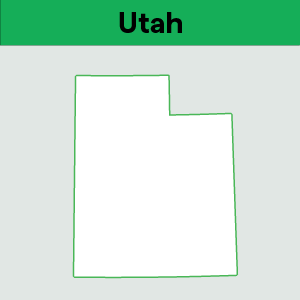I was charged sales tax on my inventory purchases—now what?
by January 26, 2025
This post by CPA Ned Lenhart will examine scenarios where you, as a merchant buying items for resale, might be charged sales tax, and how you can avoid paying tax on items and charging tax on items in the future.
As has been discussed in multiple TaxJar blog entries, sales tax is a ‘transactional tax’ and each transaction must be evaluated to determine whether sales tax applies. When determining whether they should charge sales tax on a sale, an online seller must ask:
- Do you, the seller, have nexus in the state where the item is being sold?
- Is the item taxable in that state?
- Has your customer provided a valid exemption certificate for the items purchased?
If you’re like many online sellers, you most likely purchase items of inventory from one or more suppliers and then resell that property to your customers. (For online sellers, “property” will generally mean “products.”) In one common case, you buy an item, keep it in your inventory (either at your physical location or in a warehouse, such as with Amazon FBA sellers) and then turn it over to the buyer when you sell it.
Or, you might use drop shipping. This is where your supplier ships the property to your customer directly once you receive the order. This involves two simultaneous sales: one sale to you by your supplier and another sale by you to your customer.
Sellers are obligated to charge sales tax on all sales of property unless the item is inherently exempt by law or the purchaser provides an exemption certificate that is valid in the state where the property is sent. The failure of the customer to provide a valid resale or other exemption certificate will require the seller to charge tax on the sale (assuming you, the seller, have nexus in the destination state.)
But say you are the buyer in this situation. You can avoid paying sales tax on the purchase of property that you plan to resell, but you must provide a valid resale certificate to your supplier. Otherwise, if your supplier has sales tax nexus in the state where you’re making the purchase, they have to charge sales tax on your purchase.
Why you are charged sales tax
If your vendors are charging you sales tax on the purchases you make from them, it means that you have not provided them with a resale certificate that is valid in the state where the property is sent. If your supplier is charging you tax in the ship-to state, then your suppliers must have nexus in that states and they are compelled by law to either charged tax or accept a valid resale certificate.
In most cases, the tax you are charged in the ship-to state is arising from the drop-shipment scenario discussed above. In that case, your supplier has nexus in the ship to state but your business does not. In order to avoid being charged sales tax, your business must provide a resale certificate valid in the ship-to state. Depending on the state, there are three ways to satisfy this exemption certificate requirement:
- Provide the resale certificate from your ‘home’ state,
- Use the resale certificate form valid in the ship-to state but put your ‘home’ state registration number on the form, or
- Register in the ship-to state to obtain a valid registration number and provide the valid form to the supplier.
If you are being charged tax in the ship-to state by your supplier, then you must evaluate the rules in that state to determine which of these rules will apply. Even if your business does not have nexus in the ship-to state, the first two options will allow you to provide a resale certificate without having to charge tax on sales made in the ship-to state. The last option, however, will likely obligate your business to collect and remit sales tax in the destination state once you have registered and obtained a registration number.
I was charged sales tax — now what?
If you were charged tax, it means that you did not provide your supplier with a valid resale certificate. Now that you have been charged tax, you need to determine what to do. If you have nexus in the ship-to state then your company is obligated to collect and remit the tax due. If you have charged tax on the retail sales price of the property sold, then you need to remit to the state the tax on the ‘mark-up’ since you were already charged tax on the wholesale price. In the future, you would be advised to provide your supplier with a valid resale certificate to avoid being charged tax.
If you have been charged sales tax in the ship-to state and you cannot provide your supplier with a valid resale certificate, there is little you can do. Unless you are willing to take on the obligation of collecting and remitting the tax due on sales you make in that state after you obtain your registration number, then it may be less expensive in the short run to just pay the tax on the wholesale price of the goods you purchase from your supplier. Your supplier, assuming they have nexus in the ship-to state, is obligated to charge you sales tax until you can satisfy the state’s requirement for providing a valid resale certificate.
More resources
Don’t want to keep up with ever-changing sales tax laws? Check out how TaxJar can simplify the sales tax burden.








